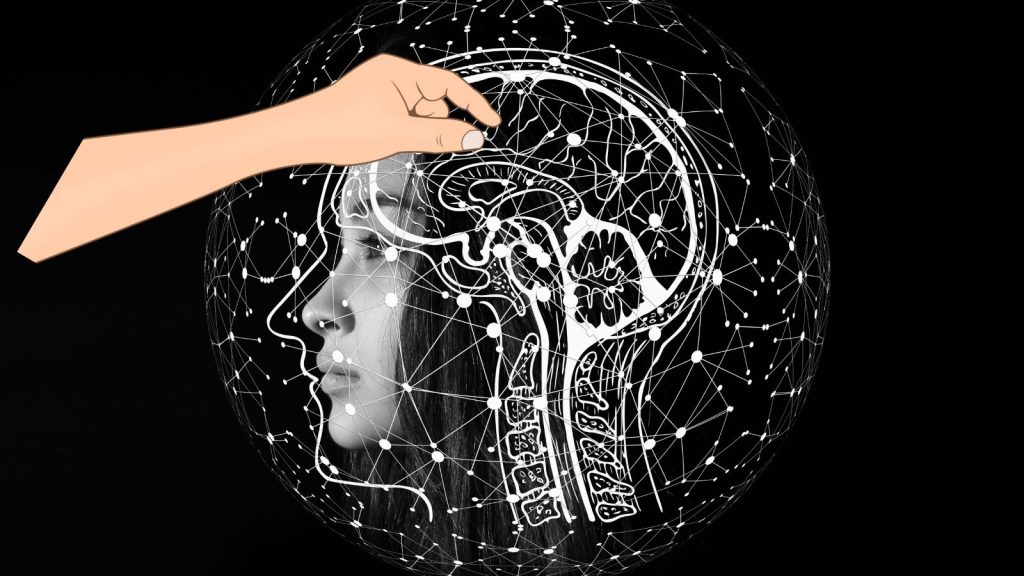“Need for cognition” is a personality tendency describing how much people engage and love to engage in effortful cognitive activities like thinking. If one loves to think, analyze, play mentally challenging games, debate, or engage in any intellectual activity, they are high on the need for cognition trait.
Cognitive activities are activities that specifically push the need to use attention, perception, problem-solving, and metacognition (thinking about thinking) in a context, such as games, everyday problems, knowledge-seeking, or any special interest niche. Those high on NoC aren’t necessarily only into a niche; they have a general tendency to get deep into many of life’s domains.
Dating preferences like being and wanting a “sapiosexual[1]” most likely arise from valuing the underlying trait of “need for cognition.”

What is Need for Cognition?
Need for cognition has multiple components. At the level of behavior, it shows a person likes to engage in intellectually challenging activities. At the motivation level, need for cognition comes with high curiosity, especially in academics or social contexts. At the attitude level, need for cognition is closely related to being opinionated.
The most obvious expectation is that need for cognition means high intelligence, but that is only partially true. One study[2] looked at many previous findings and found that need for cognition is related to both components of general intelligence: Fluid intelligence and crystallized intelligence.
Fluid intelligence is considered the brain’s cognitive capacity to remember, pay attention, perceive details, use logic, analyze and use rational thought, etc. Crystallized intelligence is based on past learning and exposure to a variety of information via education, training, skill development, media, habits, social interactions, etc.
However, in their study, need for cognition was not related to raw working memory – which is our ability to remember information for a short duration while solving problems. While it’s a sign of intelligence, working memory might not be high in all high NFC people. So they may still struggle with remembering OTPs and phone numbers or a grocery list.
In John Cacioppo’s review of over 100 studies[3], some common trends for high need for cognition (NFC) people are:
- High NFC people tend to have more task-related thoughts than low NFC people. They may even have more thoughts in general.
- They tend to need closure and are motivated to seek answers.
- They are often resistant to attitude change.
- They are inclined to learn more and evaluate problems or situations more deeply than low NFC people.
- They show high curiosity and intrinsic motivation to learn and go deep into topics.
- They engage in stimulating conversations, seek out challenging games, and look for problems to solve
- High NFC doesn’t mean low emotional quotient, and very often, those with high NFC tend to be practical but also good at seeing nuanced differences in their own (and others) emotions.
- They tend to have better information recall and contextual information recall, such as who said what and when or what the source of information is. One speculation is since Need for Cognition is a deliberate effort and people elaborate, their memory for information strengthens compared to low NFC.
- Having high NFC doesn’t mean one is objective or correct; high NFC can lead to biased and rigid thoughts/opinions just as often as logical or sound opinions.
- They are likely to gather information for fun using various sources and also show high interest in new products and brands.
- Low NFC people tend to put in mental effort only when the situation really demands it, but high NFC people tend to put in mental effort even when a situation doesn’t demand it. In short, high NFC people start thinking and elaborating earlier than needed in social or everyday tasks.
The core psychology behind Need for Cognition
According to Cacioppo’s view, need for cognition stems from an inherent preference to reduce uncertainty and high need for control and structure in everyday engagement with the world. Once need for cognition leads to rewards like getting the control one wants and reducing uncertainty, it becomes a self-reinforcing pattern of behavior. Need for cognition itself is rewarding for them, so it is also self-motivating. However, not all individuals have the same cognitive capacity or inclination to use their cognitive capacity frequently, so not all people who seek control and structure in the world are likely to show a high Need for Cognition. So may seek control through other means, like emotions (anger for example) instead of deep, detailed discussions. And some who are high in overall cognitive capacity with high processing speed, memory, and long attention spans may not seek control and structure and are ok with uncertainty, so they don’t show a lot of effortful cognitive engagement.
Need for Cognition and employee innovation
In one study[4] that measured employee NFC, high NFC was associated naturally associated with high innovation, when there was low time pressure and low control over their job (low autonomy). Essentially, the personality trait of high NFC dominates and tends to innovate when time pressure is low and freedom to choose daily tasks/decisions is low. That means – relaxed/lenient deadlines & a clear idea of what to do can lead to potential innovation in high NFC people. In line with Cacioppo’s theory, loss of autonomy should trigger some NFC behavior to gain that autonomy. In this case, that NFC leads to innovation. Artificial constraints are known to increase employee creativity, so lack of autonomy for those high in NFC may benefit from the lack of autonomy, which many find undesirable.
A reasonable hypothesis emerges from the study that could be tried out at work – individuals low on NFC could potentially be more innovative by flipping contextual variables like autonomy and time pressure. If NFC is low, they could be more innovative under high time pressure and high flexibility at work. But if NFC is high, high time pressure but still high flexibility (high autonomy) could inhibit/block innovative thinking. For many people who consider themselves “active procrastinators,” deadlines and time pressure can help with creativity and performance. While not experimentally verified, active procrastinators tend to avoid thinking till the last minute, so are likely to be low NFC.
Note to thinkers: The idea of unrealistic deadlines but the flexibility of “do what you want” could be wasting your naturally thinking-oriented brain.
Need for cognition is essentially a need, and getting one’s needs satisfied is important for healthy social relationships. Like people have sexual needs or the need for alone time, they also have a need for intellectual sparring, deep discussions, and active mental engagement. With that as a context, it is likely that those with high NFC will be more satisfied with comparable NFCs. However, high NFC can predispose a person to anxiety and overthinking, which can also create relationship problems.
Need for Cognition and physical activity
Of all the ways one can spend time – physical activity, gym, exercise, gaming, reading, learning, etc., those with high NFC tend to show more mental activity than physical activity. One study[5] suggests those with low NFC are physically more active than high NFC people over a work week. One obvious reason is that, under time constraints, low NFC people choose activities that don’t require much cognition but require physical engagement with the world. And those with high NFC neglect physical engagement and choose mental activity. But, the average person would show a little bit of both.
Need for Cognition and mental health
Need for cognition generally increases the likelihood of engaging in deliberate thinking, so one obvious problem of this is overthinking, anxiety, and negative thoughts. One study[6] showed that those who put in the effort to analyze details tend to have a worse mood than those who only observe superficial details. For example, fixating on the details of how a friend upsets you can worsen your mood more than just thinking how you felt bad, in which case you can then move on faster.
A survey study looking at 192 mid-west Christians’[7] religious behavior, including how much one doubts religion and what answers a person seeks from religion, governs one’s life satisfaction based on NFC. If one’s need for cognition is satisfied through religious answers to important questions or one’s doubt is minimized with a low need for cognition, there is a rise in life satisfaction.
Since NFC is all about purposefully engaging in information-seeking and information-processing behaviors like learning more or gaining more clarity about a topic, it has a direct impact on health. One study[8] found that those high on NFC tend to go online to seek more health-related information. This behavior can be a source of health anxiety called “cyberchondria” (like hypochondria but caused by googling symptoms) when a high NFC person spends a lot of time worrying about health and googling health concerns. You may have anecdotally seen that a lot of people who like intellectual engagement spent a lot of time learning and discussing COVID to form their own opinions.
Need for cognition, persuasion, and attitudes
Those with a high NFC are likely to be resistant to attitude change once they receive information inconsistent with that attitude. This may have negative effects on day-to-day functioning as well as more global concerns regarding the environment and politics or impressions about a brand. For example, one study[9] showed a new product with a persuasive advertisement to those with low NFC and high NFC. Researchers found that the impressions about the product decayed slower for the high NFC group compared to the low NFC group over 2 days after just 1 persuasion. In another experiment in the same study, both groups were persuaded about a food additive being unsafe. Both groups were persuaded to accept the information as true. Then, they were immediately shown a message with new information that the previous finding about the food additive was false and the additive was, in fact, safe. Those with high NFC resisted changing their initial attitude in spite of learning something new. Those low on NFC were persuaded again to accept “new facts” about the additive’s safety.
One key difference between the low NFC and high NFC groups was that the low NFC judged the quantity of information, and the high NFC group judged the quality of information. The observation suggests that high NFC people employed some level of critical thinking to form their judgment, and the low NFC group used heuristics (mental shortcuts) to form a judgment.
This study highlights a general downside of those with high NFC – those seemingly intellectual might have rigid beliefs. It may be a reason why analysts and thinkers across domains have biased beliefs about scientific development and political consequences. Looking at the resistance to attitude change, a generally accepted idea is that those high on NFC can defend their attitudes well.
There are other core personality tendencies that govern behavior, like sensation-seeking and sensory processing sensitivity, that exert a force comparable to need for cognition.
Sources
[2]: https://www.sciencedirect.com/science/article/abs/pii/S0092656612001572
[3]: https://psycnet.apa.org/doiLanding?doi=10.1037%2F0033-2909.119.2.197
[4]: https://journals.sagepub.com/doi/abs/10.1177/0149206311429862?journalCode=joma
[5]: https://journals.sagepub.com/doi/abs/10.1177/1359105314565827
[6]: https://www.ncbi.nlm.nih.gov/pmc/articles/PMC3153425/
[7]: https://link.springer.com/article/10.1007/s10902-005-1916-0
[8]: https://journals.sagepub.com/doi/pdf/10.1177/2158244013508957
[9]: https://www.researchgate.net/profile/Richard-Petty-2/publication/211387425_Personality_and_Persuasion_Need_for_Cognition_Moderates_the_Persistence_and_Resistance_of_Attitude_Changes/links/0c96052bf364aaffb4000000/Personality-and-Persuasion-Need-for-Cognition-Moderates-the-Persistence-and-Resistance-of-Attitude-Changes.pdf

Hey! Thank you for reading; hope you enjoyed the article. I run Cognition Today to capture some of the most fascinating mechanisms that guide our lives. My content here is referenced and featured in NY Times, Forbes, CNET, and Entrepreneur, and many other books & research papers.
I’m am a psychology SME consultant in EdTech with a focus on AI cognition and Behavioral Engineering. I’m affiliated to myelin, an EdTech company in India as well.
I’ve studied at NIMHANS Bangalore (positive psychology), Savitribai Phule Pune University (clinical psychology), Fergusson College (BA psych), and affiliated with IIM Ahmedabad (marketing psychology). I’m currently studying Korean at Seoul National University.
I’m based in Pune, India but living in Seoul, S. Korea. Love Sci-fi, horror media; Love rock, metal, synthwave, and K-pop music; can’t whistle; can play 2 guitars at a time.



























